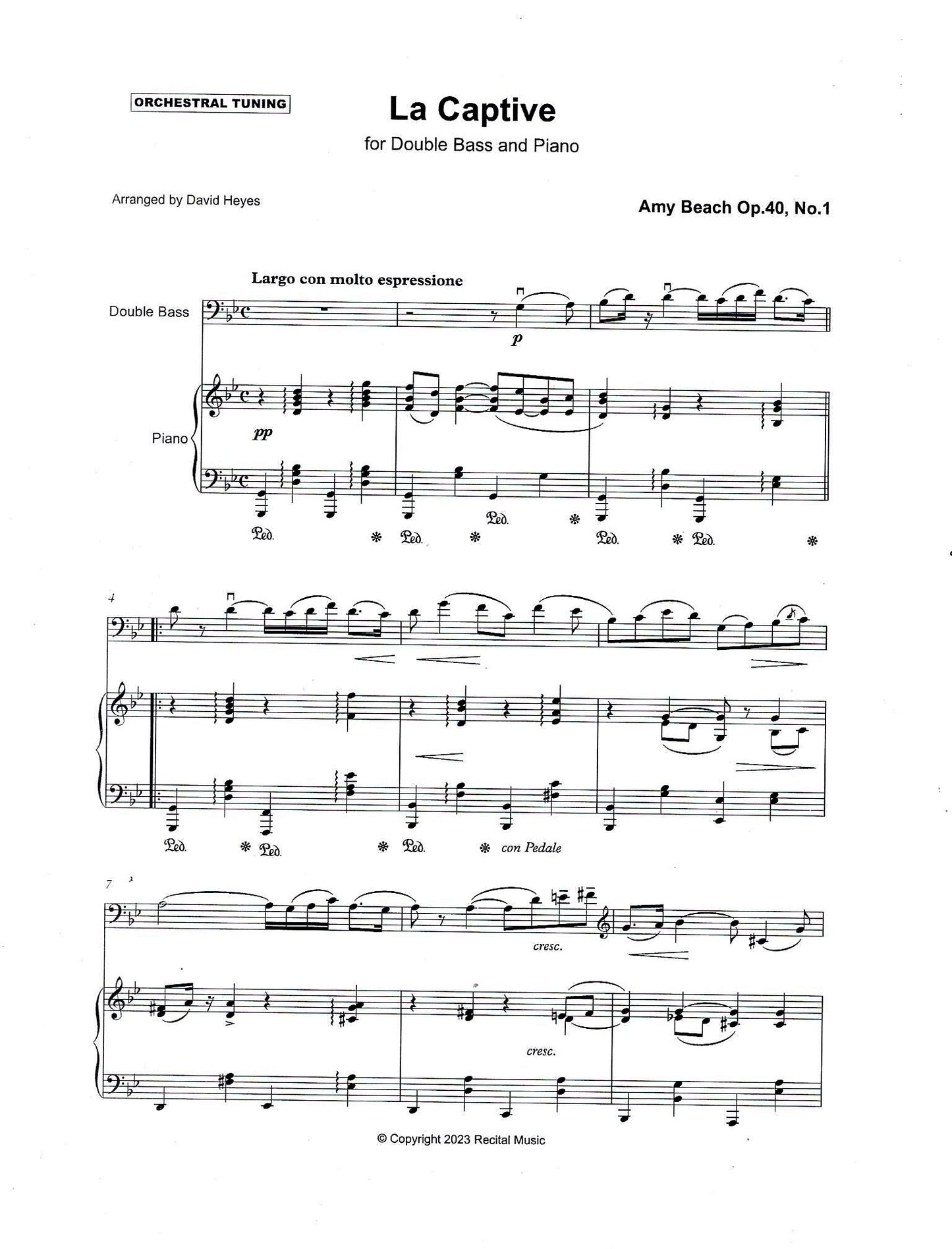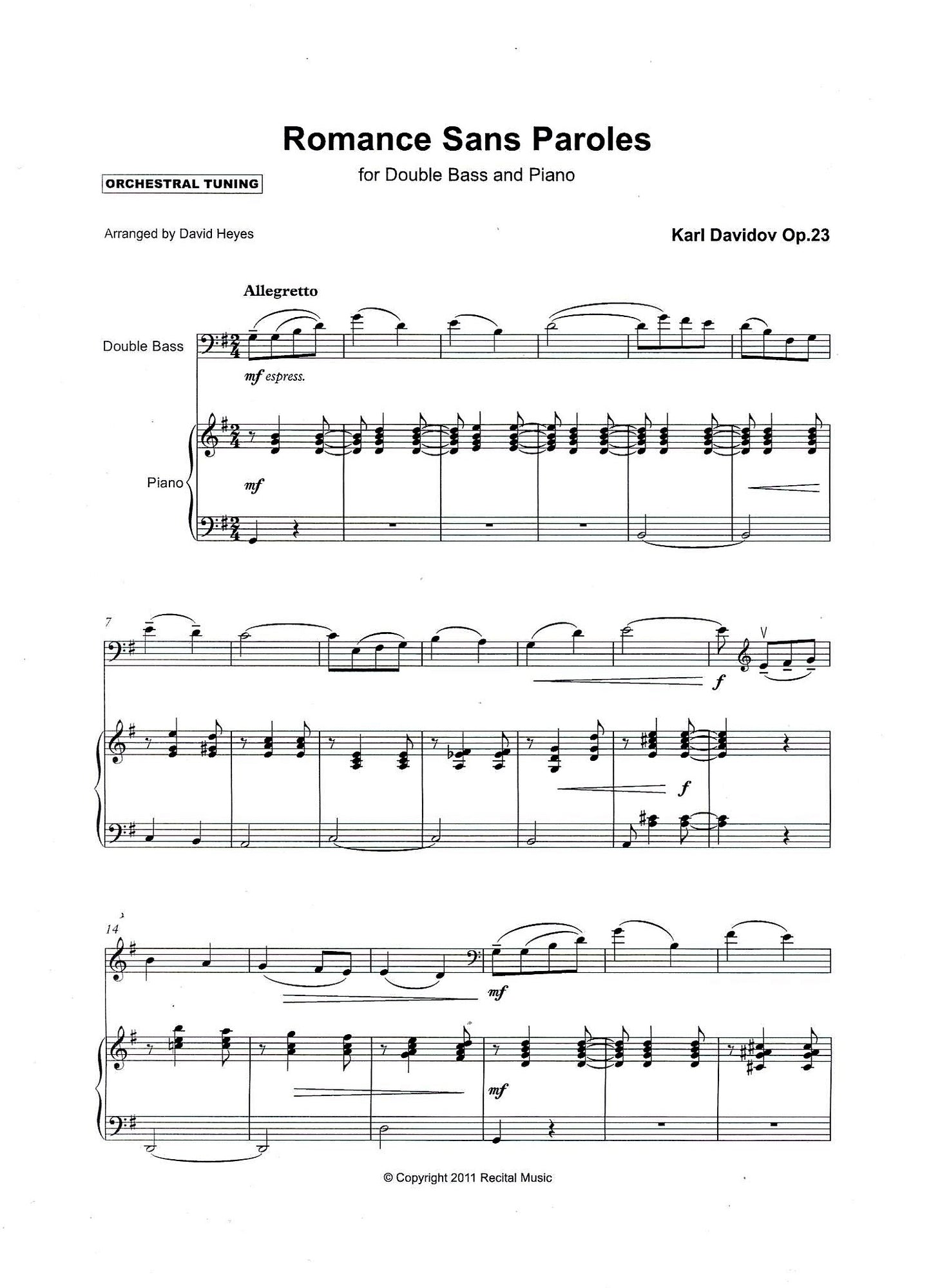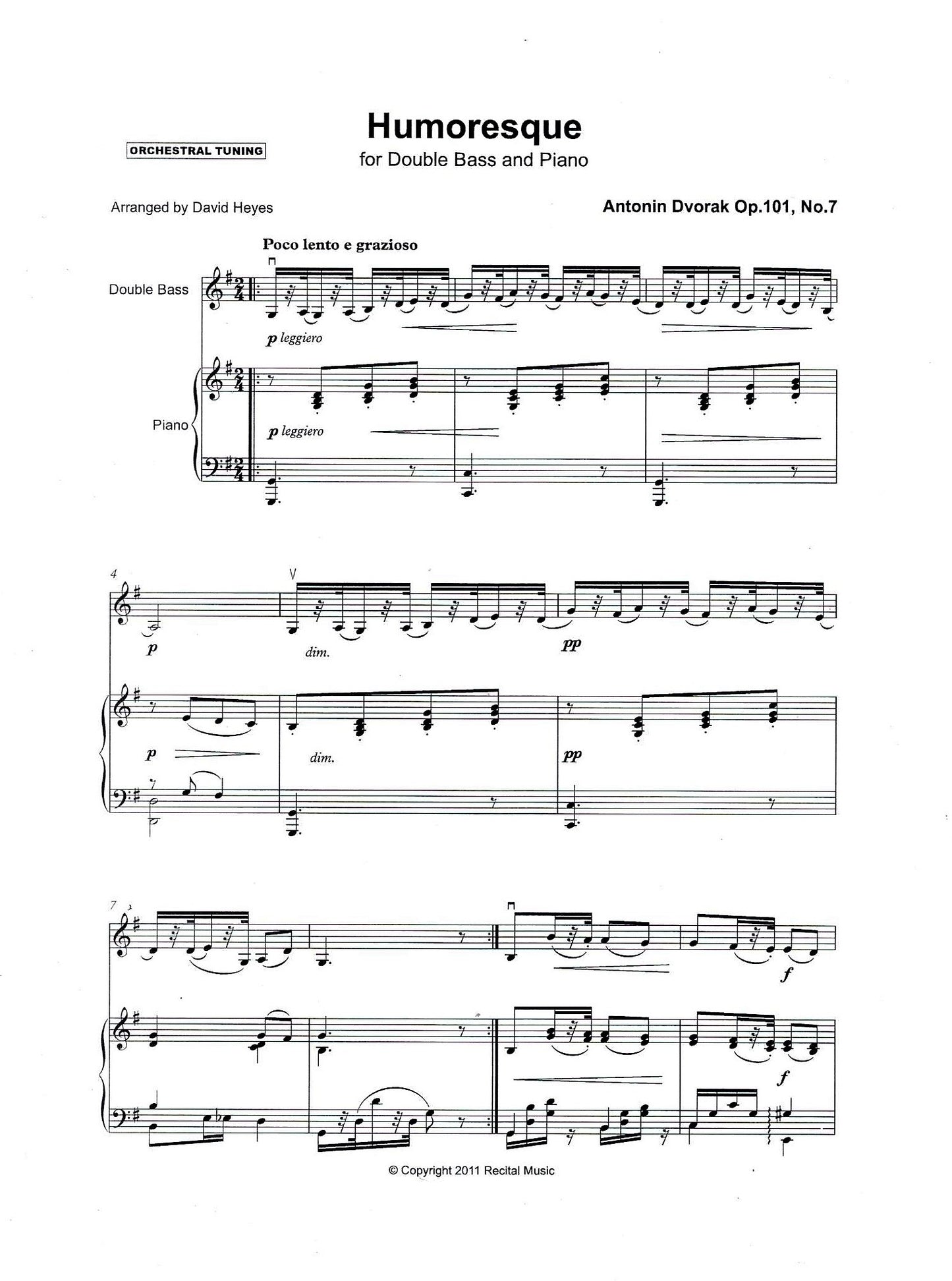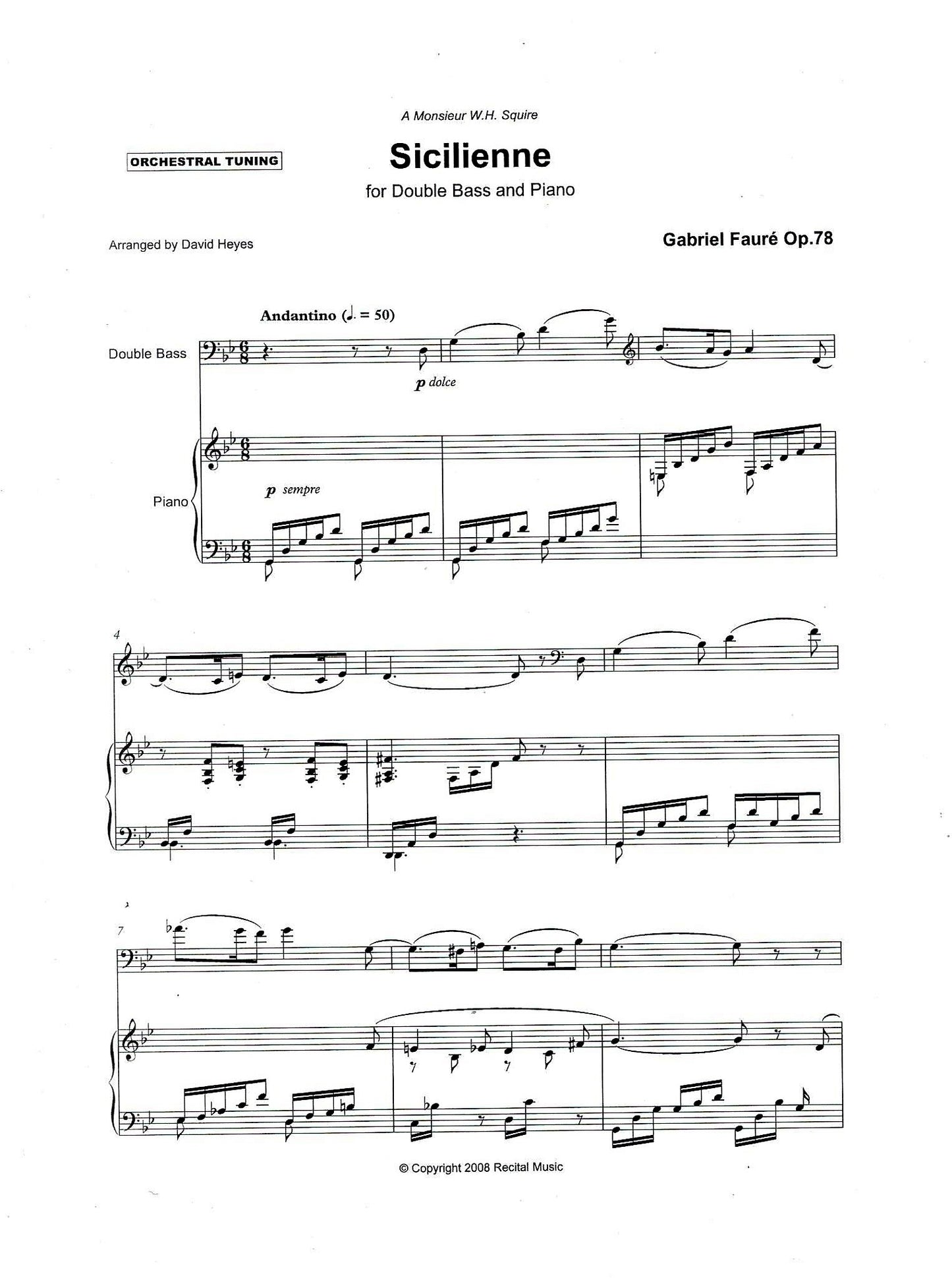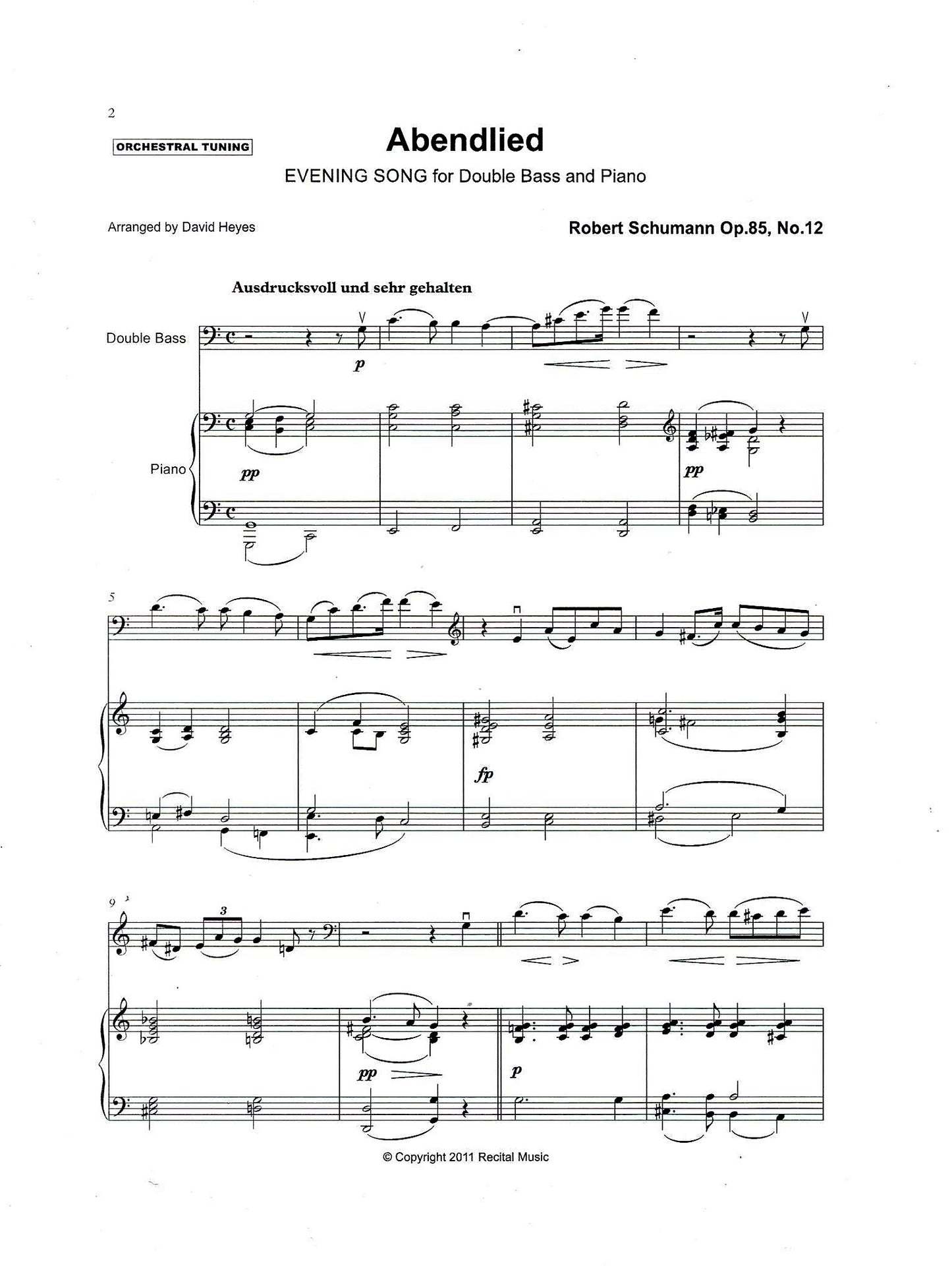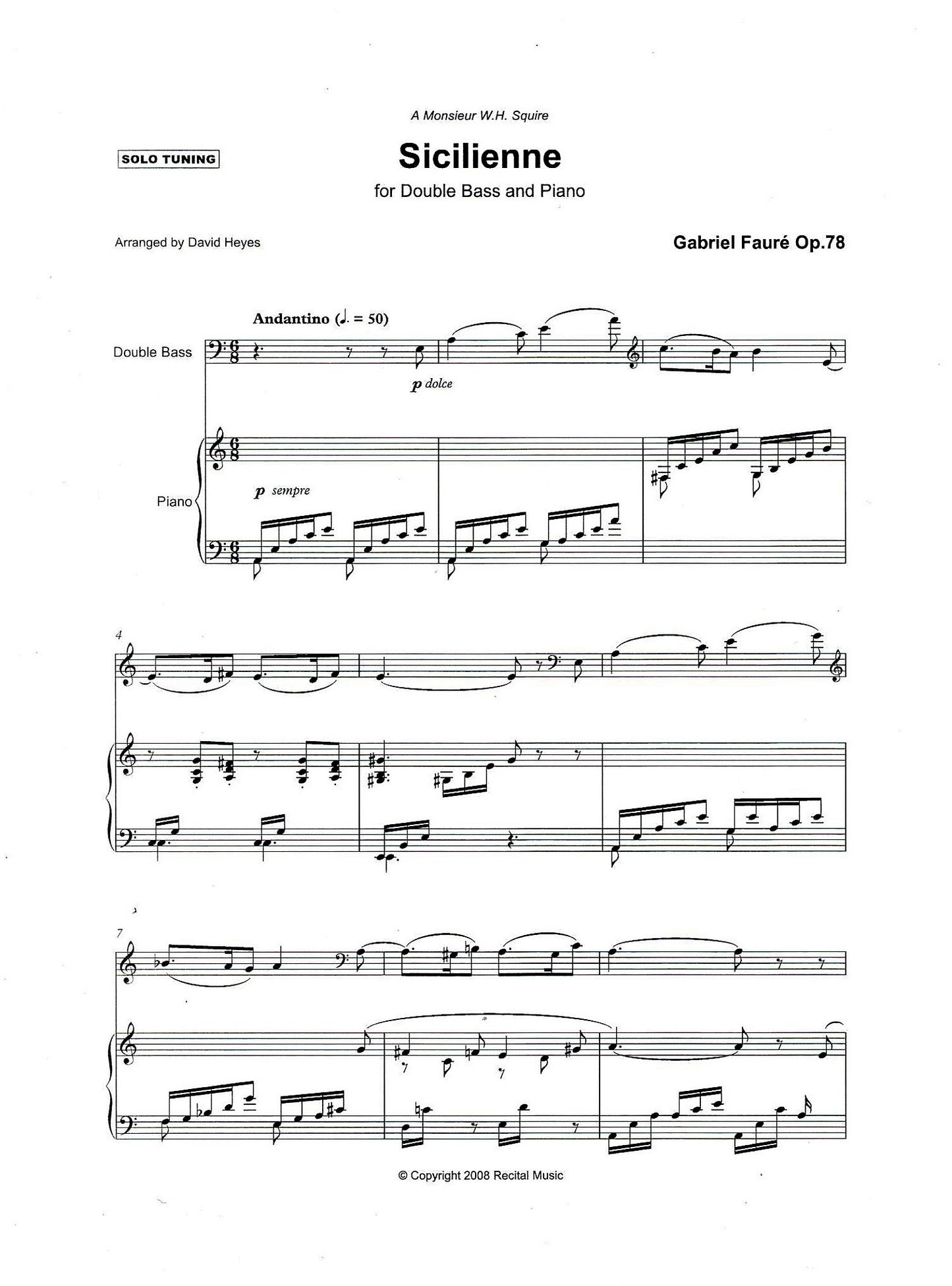David Heyes
Transcriptions Book 4 (arranged by David Heyes) for double bass & piano
Transcriptions Book 4 (arranged by David Heyes) for double bass & piano
Couldn't load pickup availability
About the Transcriptions
Transcription Series Book 4 brings together five wonderfully inventive and accessible works for the intermediate bassist, arranged by David Heyes. Ideal as both study and recital repertoire, each piece offers a range of musical and technical challenges throughout the orchestral and solo register, emphasising the virtuosic, lyrical and cantabile potential of the double bass.
Table of Contents
1. Amy Beach - La Captive Op.40, No.1
2. Karl Davidov - Romance Sans Paroles Op.23
3. Antonín Dvořák - Humoresque Op.101, No.7
4. Gabriel Fauré - Sicilienne Op.78
5. Robert Schumann - Abendlied (Evening Song) Op.85, No.12
1. Amy Beach - La Captive Op.40, No.1
La Captive is the first of three pieces for violin and piano and was originally published by Arthur P. Schmidt (Boston, USA) in 1898. It was intended to be played on the G string of the violin, emphasising the darkly lyrical and soulful qualities of that string, and transcribes beautifully for the double bass. The singing lines demonstrate the cantabile and sonorous sound of the double bass in its middle range, ending with simple but effective harmonics.
Amy Beach (1867-1944) was an American composer and pianist. She composed in many genres, writing in a late romantic style, and her Symphony in E minor (Gaelic), premiered by the Boston Symphony Orchestra in 1896, was the first symphony to be composed and published by a female American composer. In her later works she experimented with new tonalities, by using whole tone scales alongside exotic harmonies and techniques. Despite much success during her lifetime, Amy Beach’s music was neglected for decades but towards the end of the 20th-century there has seen a resurgence of interest in her entire oeuvre.
2. Karl Davidov - Romance Sans Paroles Op.23
Originally for cello and piano, a lyrical solo line is set against a chordal and supportive accompaniment, and this transcription for double bass would be ideal for the intermediate bassist. It remains primarily in bass clef, with a few simple forays into thumb position, and offers musical and technical challenges in equal measure. In ternary form, there are opportunities to demonstrate the sonorous and lyrical qualities of the solo double bass, and it would be suitable for any audience or occasion.
Karl Davidov (1838-1889) was a Russian cellist-composer who wrote many works for the cello. His concertos test the virtuosic skills of the performer, and his shorter pieces with piano are more characteristic and typical of the salon music of the time. Davidov's music has always been very popular with cellists and it is hoped that this enjoyable and accessible transcription will be as popular with bassists.
3. Antonín Dvořák - Humoresque Op.101, No.7
Originally for piano, Dvořák's Humoresque has been arranged for double bass and piano by David Heyes and this iconic and instantly recognisable melody transcribes well for the intermediate bassist. The opening theme is playful and picaresque, contrasting a more lyrical, romantic and dramatic middle section, returning to the simple and evocative melody to bring the piece to a successful conclusion. Humoresque would suit a bassist with some knowledge of basic thumb position, but there are few challenges that cannot be overcome with a little work and enthusiasm.
"Here is a favourite piece for piano, transposed one semi-tone higher than the original key of G flat major, now suitably fitting into thumb position. Poco lento e grazioso, this piece has an easy character which, by placing it in the 'open' hand and octave harmonic position is now more easily achievable. As a musically enjoyable piece, it supports the learning of thumb hand positions across the strings, as the piece opens in G major, middle section of G minor returning to G major again. It is always a pleasure to find a piece of music that I would like to play as well as teach and I am sure this is also in David Heyes' mind when producing this arrangement. It has been published with piano parts for both orchestral and solo tuning." [Liz Bradley/ESTA]
4. Gabriel Fauré - Sicilienne Op.78
Originally for cello, this lyrical and elegant Sicilienne transcribes beautifully for the double bass and is aimed at the intermediate bassist. There are musical and technical challenges, venturing into low thumb position and exploring the solo and cantabile possibilities of the double bass. The middle section can be performed in thumb position, or an octave lower, making it accessible to a wide range of players.
Gabriel Fauré (1845-1924) was a French composer, organist, pianist and teacher and was one of the foremost French composers of his generation. His musical style influenced many 20th-century composers and, although his best-known and most accessible compositions are generally his earlier ones, Fauré composed many of his most highly regarded works in his later years, in a harmonically and melodically more complex style.
Fauré's music has been described as linking the end of Romanticism with the modernism of the second quarter of the 20th century. When he was born, Chopin was still composing, and by the time of Fauré's death, jazz and the atonal music of the Second Viennese School were being heard. Grove's Dictionary of Music and Musicians describes him as the most advanced composer of his generation in France and noted that his harmonic and melodic innovations influenced the teaching of harmony for later generations.
5. Robert Schumann - Abendlied (Evening Song) Op.85, No.12
12 Klavierstucke fur Kleine und grosse Kinder for piano duet (4 hands) was written in 1849 and Abendlied (Evening Song) is the last of the twelve pieces. In the late 19th-century it was arranged for many instruments including violin, piano trio, cello, string orchestra, piano, organ, flute and even cornet à pistons. This exquisite and evocative miniature emphasises the lyrical and sonorous qualities of the double bass across the middle range of the instrument.
Robert Schumann was born in Zwickau in 1810 and died in Endenich in 1856, aged forty-six. He was one of the leading and most significant figures of the German Romantic School and made important contributions to the lieder, symphonic, chamber and solo piano repertoire. Robert married Clara Wieck in 1840, after much opposition from Clara's father, and she became a powerful advocate of her husband's music, performing his piano works to the end of her life. He often worked at speed and produced a vast body of music in such a short life. Much of Robert Schumann's music is still at the heart of the lieder, chamber music, and piano repertoire into the 21st-century.

